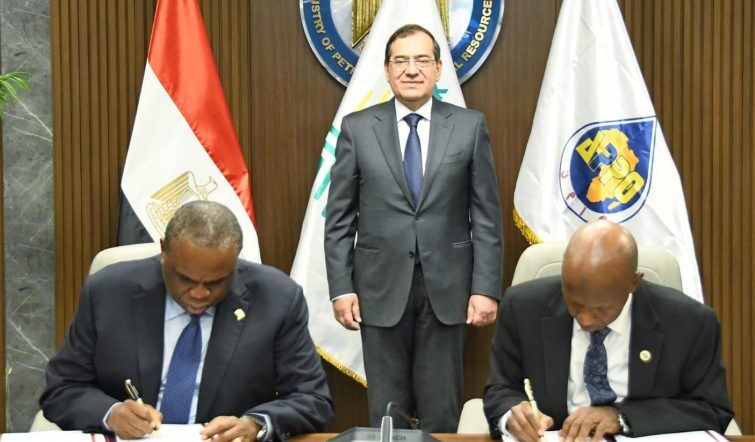The African Export-Import Bank (Afreximbank) and the African Petroleum Producers Organization (APPO) have inked a historic agreement to establish the African Energy Bank, with an initial capital of $5 billion.
Egyptian Minister of Petroleum and Mineral Resources Tarek El-Molla witnessed the signage.
Agreement details
Under this agreement, the African Energy Bank will operate as an independent regional institution dedicated to the development of energy resources across the continent.
The bank’s objectives extend beyond traditional fossil fuels, aiming to bridge the financing gap in the oil and gas sector while also supporting investments in renewable energy sources.
Minister El-Molla stressed the initiative’s crucial role in utilizing Africa’s rich energy resources for both energy security and sustainable development. Establishing the bank to finance energy projects marks a significant stride in the continent’s energy transition, leveraging existing resources and financing mechanisms to propel sustainable progress.
Founded in Nigeria in 1987, APPO serves as a crucial platform for collaboration among African oil-producing nations.
Energy finance
According to a working paper from Boston University released in 2023, African countries face energy deficits, including low rates of electricity access and a lack of clean cooking fuels and technologies. Despite this, Africa holds abundant energy potential, utilizing only a fraction of its hydropower, wind, and solar resources.
To achieve the 2030 United Nations Sustainable Development Goal Seven of providing access to affordable and clean energy for all, Africa requires between $35 billion and $50 billion in energy finance. However, the continent attracts less than 5% of global energy investment.
In Egypt, the private sector is driving renewable energy projects, with a focus on reaching a total capacity of 10,000 megawatts by 2025, as per data from the country’s electricity ministry.
Recently, the General Authority of Investment and Free Zones (GAFI) announced Egypt has received requests exceeding $6 billion from international and Gulf investors for renewable energy projects.
According to the FDI Markets index, Egypt ranked first globally in total capital invested in 2022, with energy-related investments leading the way, surpassing the GCC market.
Africa’s energy sources
Africa boasts significant energy resources, with coal, natural gas, and oil reserves representing 3.6%, 7.5%, and 7.6% of global reserves, respectively, as per African Union data.
Moreover, the continent’s renewable energy potential is vast and varied, with nearly unlimited solar potential (10 TW) and abundant hydro (350 GW), wind (110 GW), and geothermal energy sources (15 GW).
Africa, home to 16% of the global population, utilizes just 3.3% of its primary energy. In many Sub-Saharan African countries, over 30% of energy consumption, and up to 80% in some, is derived from biomass. Notably, Sub-Saharan Africa boasts significant energy reserves, estimated at 115.34 billion barrels of oil and 21.05 trillion cubic meters of gas.







